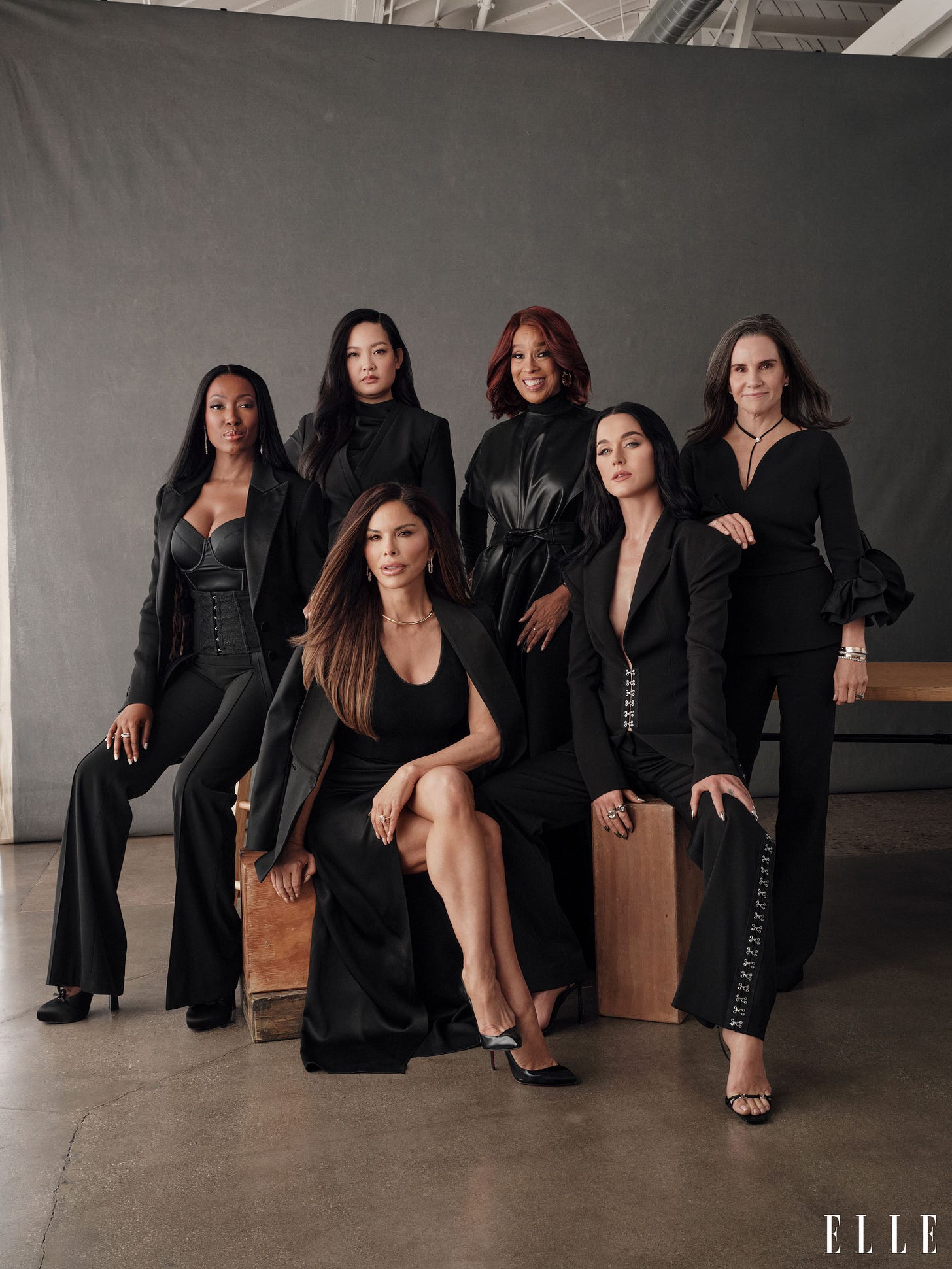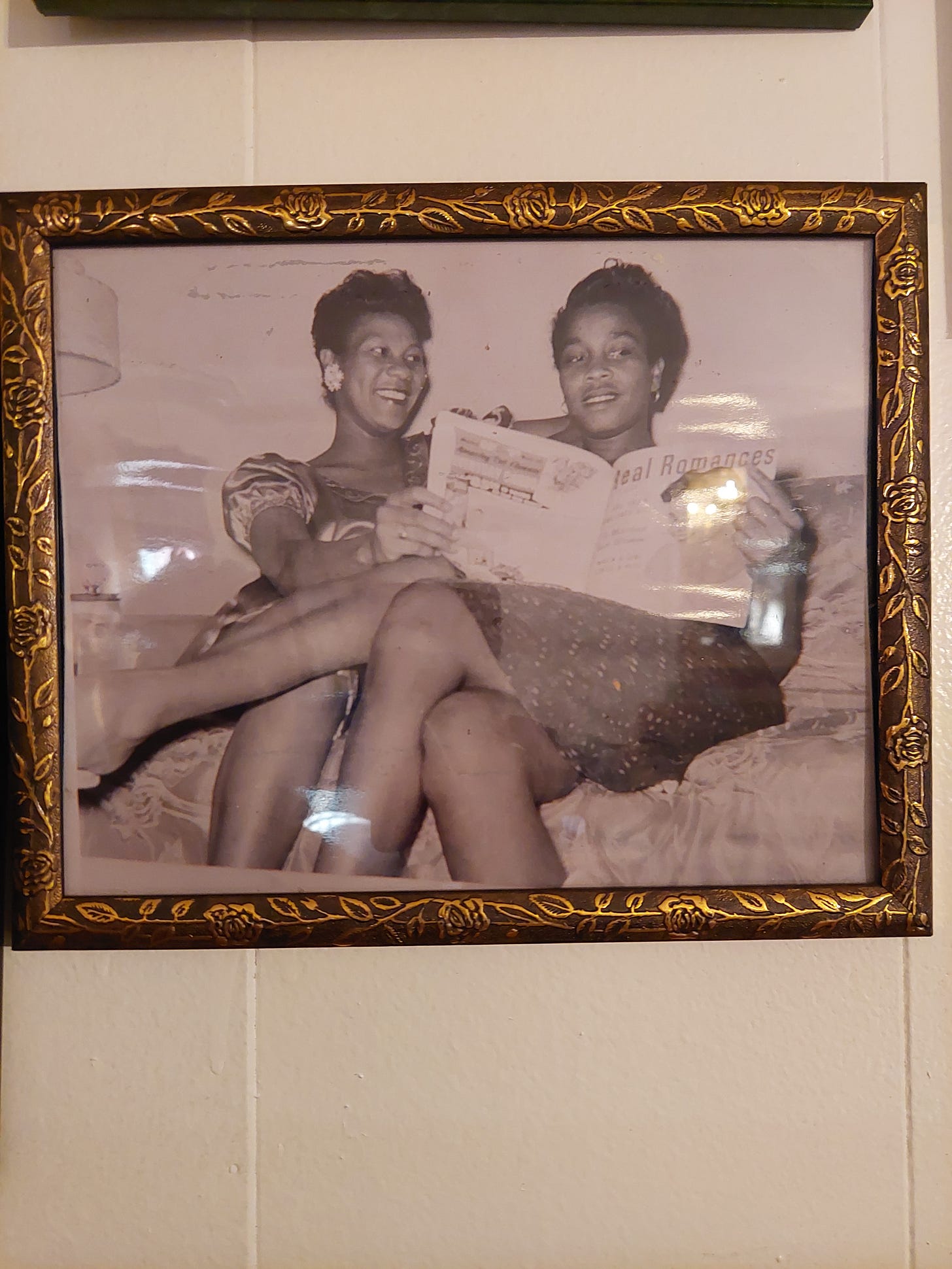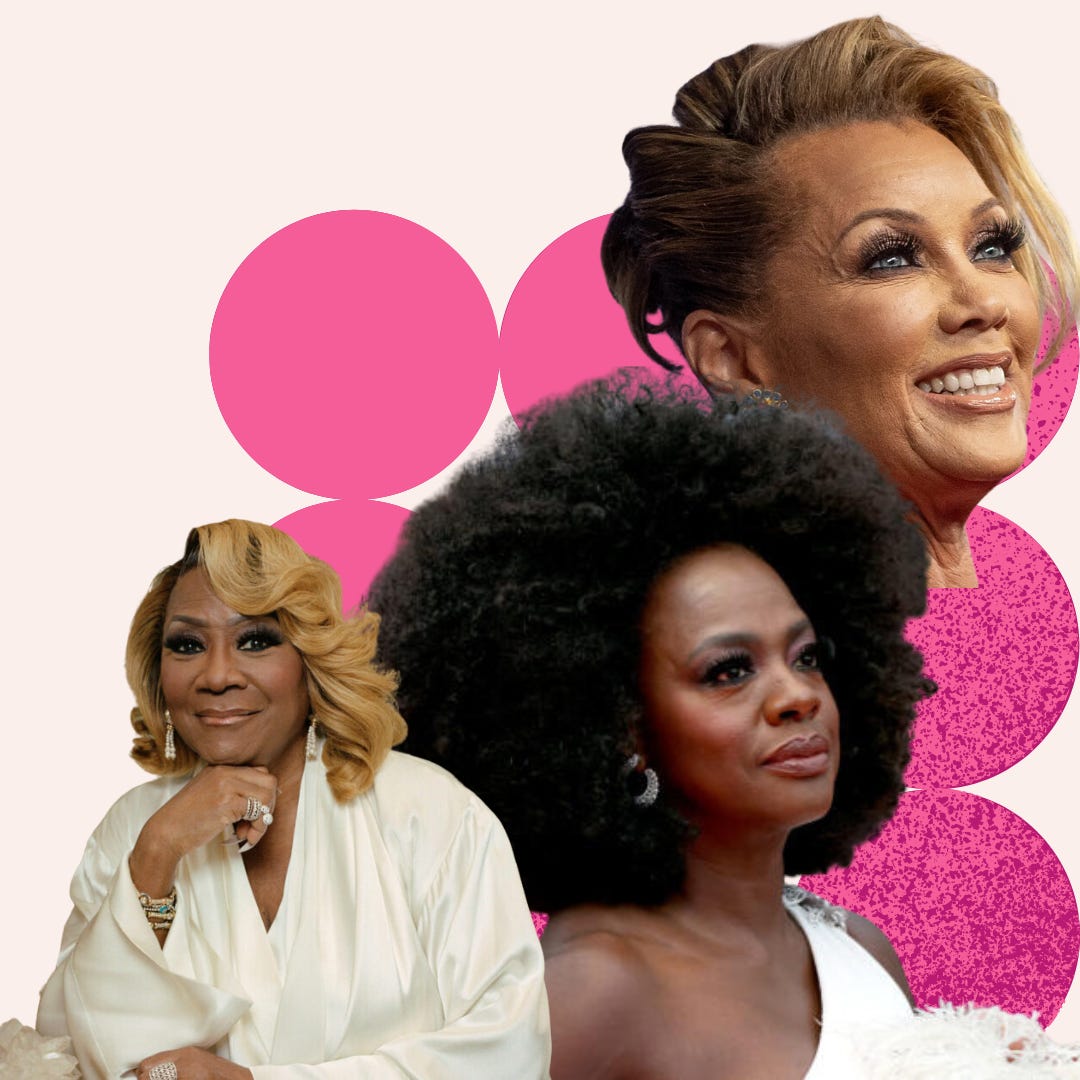I am sharing another essay that was published at the end of 2023. It feels important to share some of my earlier writing with our growing community, who may not have read it originally. Thank you for reading then, now, and again Beauties. 💖
In today’s post:
QTNA Beauty & Pop Culture Questions
The Full Beat Is 30 the new 60?: Misplaced Aging Anxieties [Repost]
Will buying the Boldhue device save you money in the long run? The $300 product scans your skin and creates your foundation shade out of a handful of primary colors. The device can be used to create a range of shades and allows users to save their name to their shade so they can “print” it when they need more. The Cut likens the product to a radiant tinted moisturizer, and I’m not mad at it. Although I would like to see how well it produces color for people with deeper skin tones. Would something like this be an investment for you, or another device collecting dust under the bathroom sink?
Why is Sporty & Rich so white? When
wrote about Sporty & Rich yesterday, I flew to their Instagram page. I scrolled back to October 2024 and found that they’ve covered a variety of women’s sports and celebrities. But have only featured Black children, including Venus and Serena Williams as children, on their page once each. And there’s one random picture of a young Denzel in February. Their demo is clear, but so too is their commitment to whiteness in the age of Angel Reese, Coco Guaff, Sha’Carri Richardson…How much did Jeff Bezos spend to get an Elle cover? My guess is that no matter the amount, it isn’t worth what they’ll lose in respect. And also, probably less than they spent on that horrendous Vogue spread. The latest Elle cover has a roundup of women, including Katy Perry and Gayle King, standing around Bezos’s fiancé Lauren Sánchez. They are all waxing poetic about their “historic” mission as an all-woman crew being jolted into space by one of our most embarrassing oligarchs for fun. Ew.
The Full Beat Is 30 the new 60?: Misplaced Aging Anxieties [Repost]
I was not concerned with aging until I turned 30. I had not realized it before a series of focused therapy sessions, but my beliefs about aging had been founded in the bodies of the women I love the most. I thought nothing of aging because the women who shaped my beliefs about aging are beautiful, vibrant, and until recently, completely able-bodied. It was not until illness reshaped their bodies that I realized that I was okay with aging so long as I could guarantee, through my loved ones, that I too would grow older while remaining beautiful and able-bodied.
At the risk of sounding completely self involved, I will not be discussing their illnesses/physical changes in detail.
When illness began to change their bodies I aligned it with aging. As a result, my gray hair was no longer a quirky topic of discussion. An innocent remark that I reminded a teenage cashier of her mom haunted me. So did my former student's innocent question "do you know what mid means Miss?" My name, with Ms. in front of it, felt like an attack on my youth. Which had become synonymous with my potential health.
I will take a moment here to underscore why this slow realization of my internalized ableism and ageism was so difficult for me to identify and admit. My doctorate is in English Literature and my concentration is Critical Disability Studies. This means that I spent the last few years of my life reading, writing, and thinking about Disability and Illness. Along the way I attended conferences, workshops, and training to help rid me of all the internalized-isms I could identify. But, when in therapy I realized where some of my new fears about aging were coming from, I felt ashamed.
I was embarrassed because I had done exactly what my experience had taught me not to do, I'd begun to view the women I loved with their changed bodies in mind. In a foundational critical disability studies text, Rosemarie Garland-Thompson writes that disabled women’s bodies, “...become a repository for for social anxieties about such troubling concerns as vulnerability, control, and identity” (Thompson, 6). I was participating in the exact kind of reductive and limiting views of ill women that I had been taught (and later taught my students) to identify and resist.
After I realized what was going on I started to do some work to rewire my brain about how I think about aging and disability. While therapy was an important factor (shout out to my therapist) I took a few other actionable steps to help me shift my perspective. I am turning 33 soon and feel much more confident and secure about aging than I did at 30.1 The women I love are aging, and beautiful, and their bodies are forever changed by their illnesses, all at the same time. I recognize the privilege it is to have been raised by them and bear witness to their lives because aging is a privilege.
Things I am doing to change my relationship with aging & disability (+ therapy):
Increase the amount of disabled beauty & lifestyle influencers I follow.
Alana, self proclaimed “Paralyzed Babe” is definitely a favorite.
Read more about what middle aged and elderly women have to say about aging.
Oldster was a great introduction to a ton of older women writers who often look back on their lives with fondness.
Or listen to them on podcasts like Listen to Black Girls Guide to Surviving Menopause.
Learn more about how corporations benefit from stoking women’s anti-aging fears.
The Unpublishable is the ultimate source of knowledge on how corporations create and uphold insane beauty standards for profit.
Remember that our ableist world needs to change, not other people’s bodies
Alice Wong’s Disability Visibility, “a column on being disabled in a nondisabled world” is an excellent place to begin.
Turn to 50+ women as sources of style and fashion inspiration.
@AdvancedStyleOfficial highlights some of the most unique and free women over 50, who use fashion to express themselves.
Support sites and spaces dedicated to helping older Black women tell their stories in their own words.
Real Black Grandmothers: A Digital Archive is a loving example of what can happen when we honor and share older Black women’s lives.
I am currently 34 years old.







Thank you bringing this one back! I absolutely love it. When I turned 35 this year it was like a ran into an brick wall of anti-aging. All of a sudden I felt I wasnt young anymore, and I also felt I wasnt old at the same time. Thank you for the resources too!